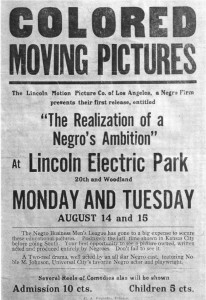[R]ecently, The Root’s editor-in-chief, Henry Louis Gates Jr., sat down with Mr. Touré, author of ‘Who’s Afraid of Post-Blackness?,’ to talk about racial authenticity – being black during Obama’s presidency – and why the African American shouldn’t have to prove their racial allegiance to anyone.
Touré’s whole argument about the need to define ‘post- blackness,’ as opposed to a post-racial America, rests on a premise I am incapable of grasping. It basically boils down to an idea that black people who see themselves as living in a post-blackness era should see themselves as having more possibilities or choices, and should not be necessarily constrained by race even though racism still pervades our society. My immediate reaction was, ‘what?‘
[youtubegallery cols=2000]
Toure’s “Who’s Afraid of Post-Blackness” |http://www.youtube.com/watch?v=mTAeJSssH1s
Ise Lyfe and Toure’ discuss “Post Blackness” |http://www.youtube.com/watch?v=u1iL1D-DLms
Who’s Afraid of Post-Blackness? – Reading |http://www.youtube.com/watch?v=0EX1Aewod2k
[/youtubegallery]
Over and over again, these academic exercises of what it means to be Black in America continues to rule its ugly head in the media. Unfortunately, it has come to permeate the fabric of our cultural production medium – film. It is not uncommon to find an up and coming black filmmaker today, who only wants to make movies that appeal to all people and not just black people. In a sense they are alluding to this concept of ‘post-blackness’ if not a ‘post-racial’ America.
[A]nd there is nothing wrong with that but they’re seemingly surprised when neither black folks, from whom they run, don’t want to watch their movies but troupe to see Why Did I get Married too? What the hell is ‘post-blackness?’
Every now and then, we have these ‘black’ academics talking down to Black people, that there is no ‘one-way’ to be Black, that there is no such thing as Blackness. They claim their way of being ‘black’ – living in their white neighborhoods, having a couple of black friends, attending white schools, eating white food, listening to white music and dancing to white tunes every day of their lives – is as authentic as the Hutu in Africa.
 Henry Louis Gates Jr. and Mr. Touré may look black and may continue to emphasize their whiteness and/or blackness, but why are they so obsessed with re-defining blackness?
Henry Louis Gates Jr. and Mr. Touré may look black and may continue to emphasize their whiteness and/or blackness, but why are they so obsessed with re-defining blackness?
It is painful listening to these discussions and it is unfortunate that these are the only deliberations about black people you will find in the media today. What I am most worried about is how this way of thinking could inevitably pervade the fabric of our cultural production in film. We may have already seen one such repercussion of it in Jumping The Broom.
The truth is, you won’t find authentic black people talking about blackness – as a concept – nor would you find them trying to pen a definition of it. But it’s always the ones who struggle with identity, like the Henry Louis Gates and the Tourés, who constantly plug our ears with the, ‘we are black too!’
Okay then – Negro! Knock yourself out.
Perhaps, there is no such thing as a black-center to which all black people must coalesce, nor such a thing as a black-cultural-fulcrum, about which all black experiences must swing. To suggest something to the effect will be parochial and will exclude the vast diversity and complexity of Blackness itself.
But, the impossibility of defining blackness, is not proof of the absence of it. Rather, it attests to a certain complexity that we are incapable of writing or paraphrasing in oratory.
However our experiences speak volumes. When we walk into a Black Church, or even Club One, we know it. When we venture into a white party, we can immediately tell. If you can’t, well hell, you are probably not black!
However, I can accept the argument that the margins of Blackness, which may have been more clearly defined in America as a result of Slavery, have faded thinner and lighter in the 21st Century. But the faded margins, according to Malcolm X., are only evidence of the dilution about which we were vehemently forewarned.
If anything at all, Mr. Toure’s confusion with defining post-blackness is increasingly rendered incomprehensible by his endorsement of a non-existent post-racial America. How do you achieve post-blackness, in a milieu of racist America?
The fact that you can go to Paris, Moscow, jump out of airplanes, eat sushi, ski, and sing country music, doesn’t stop you from being black. Black Chameleons are still black! Mr. Toure is obviously confused with his intro class in sociology back in college – the Sociology of Race and Class – and a re-reading might do him a little good. The inter-sectionality of class and race cannot be over-emphasized but it is expedient to reiterate that one does not wipe out the other or re-define the other.
Not to say that black people who have “made it” owe anyone a thing, but collective effort and collective identity is so evidently necessary in our communities. If only a select few have the privileges that white society have always enjoyed at our expense, then the sense of black freedom and economic emancipation is always going to be a contrivance and black folks may just assume the very few – the so called talented tenth or rather the House Negros – are just sellouts in a country where they have been and still are collectively and systematically oppressed.
Those who find themselves caught up in these privileges that white America has to offer – those very few – are inextricably tied to the apron strings of white culture and have even become stewards of the production of it, often find themselves caught in the middle, the Sun shining down on their faces and the only thing holding them back from completely making that transition – their brown skins. And we are sorry the color-line is still an obstacle in the 21st Century!
But a man who’s constantly questioning our blackness, a fortiori, is the man who is perhaps, not black, a priori. There’s no such thing as post-blackness in America!











Thank you I thought I was the only one not understanding how correspondents in black media could bash the culture they come from. Yes its fine to like different things then those that you grew up around, and I encourage advancement. However, do not try and look down upon others, because I for one like Tyler Perry and consider myself very educated. And for all the people who believe they are beyond “blackness” when you are exploring Europe remember there are black people there too.